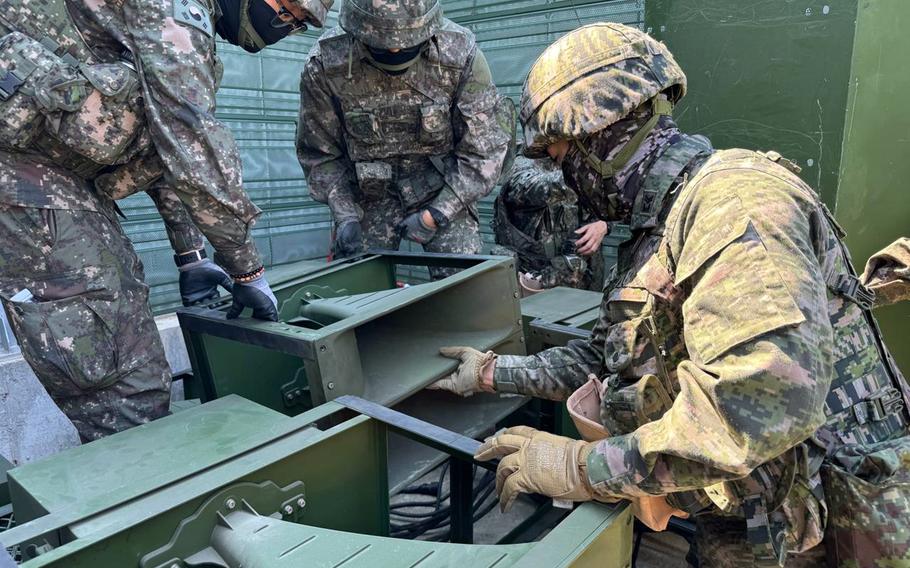
South Korean soldiers inspect loudspeaker equipment at an unspecified location near the Demilitarized Zone, June 9, 2024. (South Korean army)
North Korea stopped broadcasting propaganda along the inter-Korean border late Wednesday, hours after the South took the first step by silencing its own loudspeakers — a move aimed at easing tensions.
South Korea halted its broadcasts along the 160-mile Demilitarized Zone at 2 p.m. Wednesday, according to a statement from the presidential office the following day.
By that evening, no North Korean broadcasts were heard along the border, South Korean army Col. Lee Sung-jun said during a news conference Thursday.
The South’s loudspeakers have typically played K-pop music, news and other content intended to challenge Pyongyang’s ideological control. North Korea’s broadcasts, in contrast, feature political monologues condemning South Korean society and democratic governance.
The mutual silence follows a move by newly inaugurated South Korean President Lee Jae-myung, who campaigned on restoring trust with the North. It also marks one of the first foreign policy actions of his administration.
In June 2024, former President Yook Suk Yeol restarted the loudspeakers after a six-year pause, citing North Korean ballistic missile tests and waves of trash-carrying balloons launched into the South. The escalation led both countries to scrap a 2018 agreement that restricted military drills and flights near the heavily fortified border.
Pyongyang’s quick response may indicate openness to improved relations under the new administration, said Koh Yu-hwan, professor emeritus of North Korean studies at Dongguk University in Seoul.
“North Korea will pay attention to how the new South Korean government will define its stance,” he told Stars and Stripes by phone Thursday. “Since South Korea has made positive moves, I believe North Korea will refrain from further provocations.”
Koh added that while immediate reconciliation is unlikely, gradual steps could lead to a more stable relationship.
“It would be hard to return immediately to the peaceful past,” he said. “However, we can expect North Korea to adjust their stance on South Korea, not aggravating our current situation.”